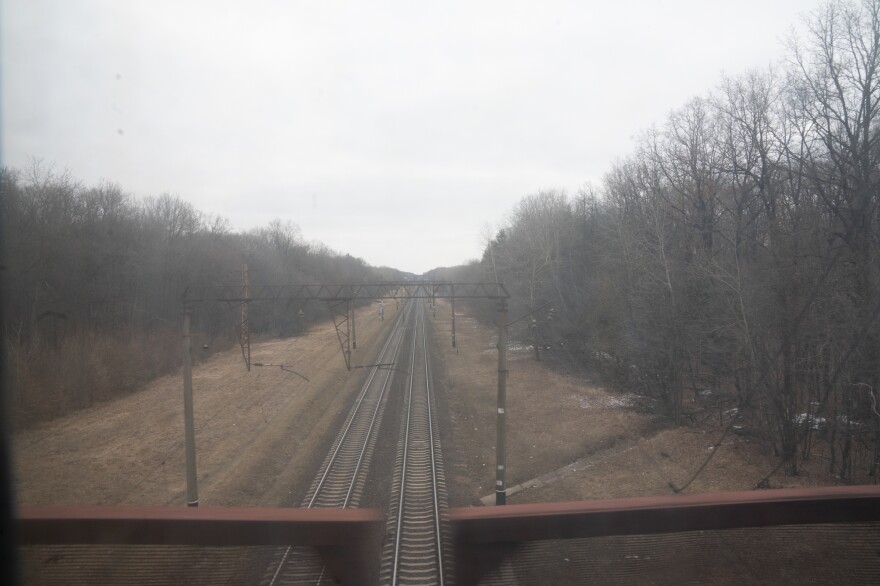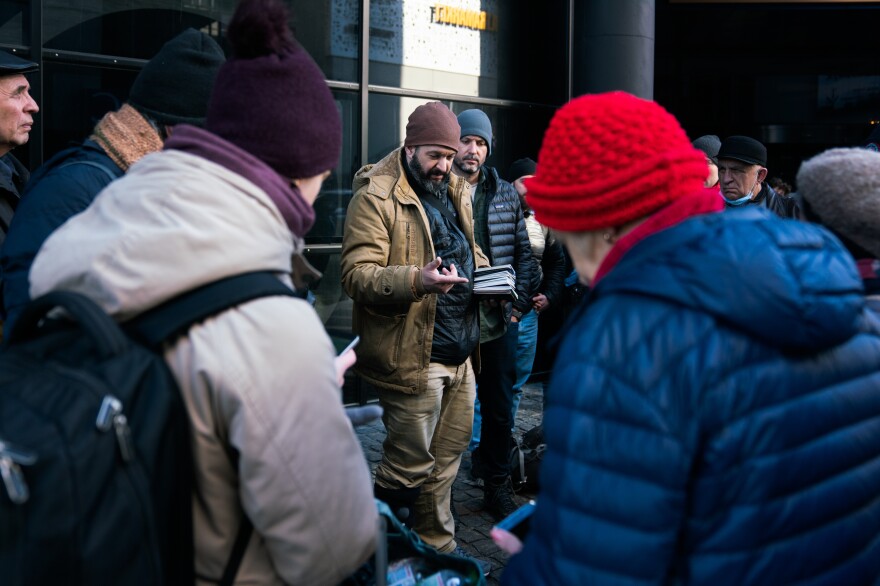The images of bodies strewn through the streets of Kyiv's suburbs have shocked the world.
They show the terror that Ukrainians have lived through under Russian siege and capture how difficult — if not impossible — it has been to evacuate people from besieged neighborhoods in Ukraine.

Bryan Stern knows that struggle well.
The U.S. Army and Navy combat veteran runs a nonprofit group, Project Dynamo, that extracts people from hostile places. Since Russia's invasion of Ukraine, the organization has rescued more than 400 people.

Stern's evacuation missions started last summer, as Afghanistan fell to the Taliban and he watched desperate Afghans cling to the landing gear of planes taking off from Kabul.
"It struck a chord with me because the last time I saw people fall to their deaths was on 9/11, as they were falling on top of me," says Stern, who was a first responder following the al-Qaida terrorist attacks on Sept. 11, 2001.


Six months after the fall of Kabul, on the day Russia began its invasion, Stern arrived in Ukraine to start getting people out from some of the hardest-hit cities and towns under Russian bombardment.
"They're terrified, they're confused and they're about to enter a chapter in their lives that has no definition," Stern tells NPR from an overnight train to Kyiv, the capital, for his next set of extraction missions. "Their entire livelihood is whittled down to a shopping bag — every personal possession, every little thing."
Once Stern arrives in the capital, he heads to a rallying point where a bus waits for passengers whom it will take to the border with Romania. An American, several Ukrainians and Georgians are among the group. One older couple weeps as the two kiss their daughter goodbye.

The bus door closes, and this group is on its way with Brett Velicovich, a Project Dyanamo colleague of Stern's.


Stern stays behind to focus on his riskiest mission yet — figuring out how to get Bob Platt, a 62-year-old veteran of the U.S. Army's 82nd Airborne Division, out of a Kyiv suburb where he lives with his Ukrainian wife.
Days before Russia's invasion started, President Biden urged Americans to leave Ukraine. At the time, Platt's wife was sick with COVID-19, but as she got better, the situation around them grew worse and they found themselves trapped.


Amid reports of Russian soldiers going door to door in the suburbs killing civilians, Stern urges Platt to drive out of the neighborhood. But Russian checkpoints are everywhere, as well as constant artillery fire. Platt is reluctant. He has heard that people who travel alone and without some sort of escort are killed.
Stern decides to try to drive out alone to get Platt.
He makes it within 5 miles of Platt and his wife and suddenly comes under artillery fire. He is forced to abort the rescue.
Stern tries again and again. Finally, one morning at 4 o'clock, Platt gets a text message from him.
"Be ready to leave in 20 minutes," it says.
Under the cover of darkness, Platt, his wife and two of their six cats take logging trails through a national forest out of their suburb. They make it out.

"The whole two, three weeks we were stuck, artillery, mortar fire, it was falling all around us," Platt told NPR after crossing the border into Poland as Russian bombardment continued in and around Kyiv. "We were in the middle of a 360-degree Russian battalion."
While Platt and his wife were stuck in their village of Bohdanivka, they started to run low on essentials.
"The gas got cut off. The electricity got cut off. We were down to eating six potatoes a day," he says.
Those who did venture out did not always make it back, like one of their neighbors who tried to get water from a community well.
"He was an unarmed civilian — probably a guy about my age — and [Russians] killed him," says Platt. "To this day, he's still sitting in his car. They won't let anybody recover the body."
The scenes of cities and towns that Ukrainian forces recently took back show just how many people, like Platt's neighbor, did not survive the Russian siege. Ukrainians in cities like Mariupol are still stuck with little chance of rescue.
Even so, Platt is determined to return home to Kyiv.
"If I have to live to be 100 to spend every dollar of my retirement income to help rebuild the place, that's what we're going to do," he says. "I will go back."
Copyright 2022 NPR. To see more, visit https://www.npr.org. 9(MDExNDI3NjUzMDEzNjkzMTgzNTExNDFlYQ004))









